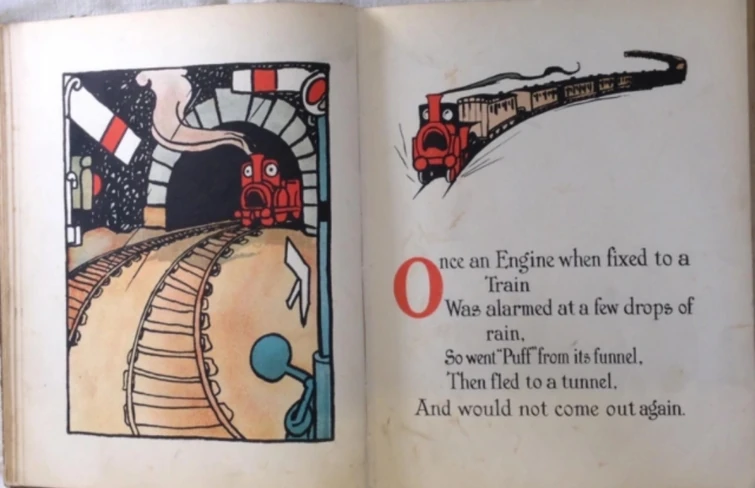I think there's some useful context, if not a good defence of this story.
It's one of the original stories told by Reverend Awdry told to his 2 year old, measles-ridden child in 1942 war-era England (Wait, is this making it worse?).
Awdry would sing/recite old poems to Christopher, who then pressed him for further details that turned into a story.
For example, the opening of that episode of Thomas features the Limerick that prompted the story, which was around at least since 1902:

In the original story by Awdry, there is only a single tunnel, and the train is completely blocking the line and essentially ruining a business. So stubborn is the engine, that they have to dig a new tunnel beside the old one. The rails are removed and "a wall" are placed in front of the tunnel, for safety - to prevent trains literally running into the wrong tunnel and crashing. The Fat Director/Controller is also pretty unsympathetic deliberately - he commands people to push and pull the train out without success, but doesn't himself help - "My doctor has forbidden me to push". However the original books follow the realities of steam engine and railway operation far more closely than the TV series did (and as a result, the original series, closer to the books, were far more realistic than the later ones).
As portrayed in the TV show it definitely comes off more villainous. But in the original telling we have to take away 70 years of Thomas trains having faces, personalities, relationships and familiarity. When originally told, the Henry story didn't even take place in the same "universe" - there was just 3 abstract stories about trains, loosely based on old rhymes and news stories.
It also reminds me of "and then everyone clapped"